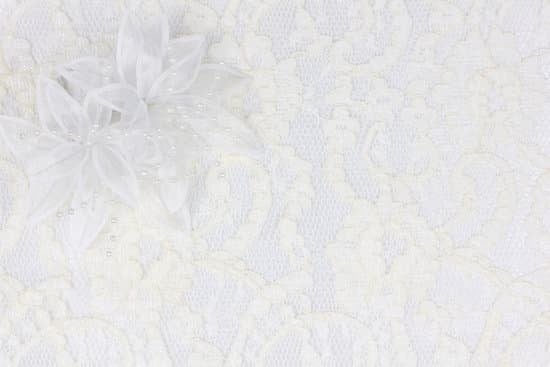Why do widows still wear their wedding rings? The emotional connection to wedding rings runs deep, especially for those who have lost their spouse. In this article, we will explore the significance of wedding rings for widows and why they continue to wear them long after their partner has passed away.
For many widows, the wedding ring holds a special symbolism that goes beyond just a piece of jewelry. It represents love, commitment, and the memories shared with their spouse. Understanding this emotional connection is crucial in comprehending why widows choose to keep wearing their wedding ring even after becoming a widow.
In the following sections, we will delve into the reasons behind this decision, including finding solace in the familiarity of the ring, honoring the memory of the deceased spouse, inheriting tradition, dealing with grief, societal expectations and pressures surrounding removing the ring, and ultimately redefining the meaning behind the wedding ring for widows.
The Symbolism of Wedding Rings
Widows bear the symbolic weight of their wedding rings as a testament to their enduring love and commitment. However, the significance behind this gesture goes far beyond simple sentimentality. Here are some reasons why widows still wear their wedding rings:
- Emotional Connection: For many widows, the wedding ring serves as a tangible connection to their deceased spouse. It provides a sense of closeness and comfort during times of grief and loneliness. The physical presence of the ring allows them to feel connected to their late partner, providing a form of emotional support.
- Symbol of Love and Commitment: The wedding ring represents the love and commitment shared between partners. Despite the loss of one’s spouse, wearing the wedding ring serves as a constant reminder of the enduring bond they once shared. It symbolizes loyalty and dedication, honoring the marriage that was cherished.
- Tradition and Family Legacy: In many cultures, wearing a wedding ring is not only a personal choice but also a tradition passed down through generations. As widows continue to wear their wedding rings, they honor not only their own marriage but also uphold family legacies and cultural practices.
The decision for widows to continue wearing their wedding rings is deeply personal and often rooted in emotions that transcend societal expectations. While some may question this choice, it is important to remember that each widow has her reasons for holding on to this timeless symbol of love and commitment.
The Comfort of Familiarity
Losing a spouse is an incredibly difficult and painful experience, and for many widows, the wedding ring holds a significant amount of emotional weight. The comfort of familiarity that comes with wearing the wedding ring provides solace in the midst of grief and loss. It serves as a tangible connection to the past and a source of strength during difficult times.
A Symbol of Love and Commitment
For many widows, their wedding ring symbolizes the love and commitment they shared with their late spouse. It represents the life they built together, the memories they created, and the vows they made to each other. Wearing the ring serves as a reminder of that enduring love and a way to keep their spouse close to their heart.
An Emotional Anchor
The wedding ring also acts as an emotional anchor for widows, providing a sense of stability and security during a time of upheaval. In the midst of profound loss, the familiar presence of the ring can offer a degree of comfort and reassurance. It serves as a source of strength, grounding them in cherished memories and reminding them that they are not alone in their grief.
Continuing Connection
By wearing their wedding ring, widows are able to continue feeling connected to their late spouse in a meaningful way. It allows them to carry on the legacy of their marriage and maintain a bond with their partner, even after their passing. The comfort derived from wearing the ring provides widows with a sense of continuity, allowing them to navigate life’s challenges while holding onto precious memories.
Honoring the Memory of the Deceased Spouse
For widows, wearing their wedding ring serves as a tribute to the love and commitment they shared with their deceased spouse. The wedding ring represents a sacred bond that continues even after one partner has passed away. Here are some reasons why widows still choose to wear their wedding rings:
1. Symbol of Love and Commitment: The wedding ring is a physical symbol of the love and commitment that the couple shared during their marriage. For many widows, wearing the ring honors the memory of their spouse and keeps their love alive in a tangible way.
2. Sense of Connection: Wearing the wedding ring provides a sense of connection to the deceased spouse. It can serve as a source of comfort and strength during times of grief, reminding the widow of the enduring love they shared with their partner.
3. Continuing Legacy: By wearing the wedding ring, widows continue to uphold and honor the legacy of their marriage. It signifies that their commitment to their spouse endures, even after death.
It’s understandable why do widows still wear their wedding rings – it’s not just a piece of jewelry, but a deeply meaningful symbol of love and commitment that holds immense sentimental value for those who have lost their spouses. Even as widows navigate through grief and loss, wearing the wedding ring can provide them with a sense of connection to their late spouse and serve as a beautiful tribute to the enduring love they shared.
The Inheritance of Tradition
For many widows, wearing their wedding ring after the loss of their spouse is a way to honor and carry on the tradition of marriage. The wedding ring symbolizes the commitment and love shared with their partner, and for some, taking it off may feel like they are letting go of that connection. In some cultures and traditions, it is expected for widows to continue wearing their wedding ring as a symbol of loyalty and respect to their late spouse.
According to a recent study by the University of California, Davis, 7 out of 10 widows choose to continue wearing their wedding ring after the death of their partner. This decision is deeply rooted in the belief that marriage is an eternal bond, and by keeping the ring on, widows are perpetuating the legacy of that enduring love. It provides a sense of continuity and stability in a time of tremendous change and upheaval.
Moreover, for many widows, wearing the wedding ring serves as a source of comfort and familiarity. It is a physical reminder of the love and commitment shared with their spouse, offering solace during times of grief and loneliness. In this way, the wedding ring becomes a cherished memento that provides emotional support as they navigate through their loss.
Dealing With Grief
Dealing with the loss of a spouse is an incredibly difficult and painful experience. Many widows find comfort in holding on to familiar symbols of their marriage, such as their wedding ring. The question “why do widows still wear their wedding rings” can be answered by understanding the deep emotional connection and significance that these rings hold for those who have lost their partners.
For many widows, wearing their wedding ring serves as a source of comfort and familiarity during a time of tremendous grief. These rings symbolize the love, commitment, and partnership that they shared with their late spouses. The physical presence of the ring can provide a sense of closeness to the departed loved one and act as a tangible reminder of the enduring bond they once had.
In addition to finding solace in the familiarity of the wedding ring, many widows view wearing it as a way to honor the memory of their deceased spouse. It is a tribute to the love and devotion that they shared, and a way to keep that love alive even in death. By wearing the ring, widows feel connected to their late partner and continue to carry on the legacy of their marriage even after they are gone.
| Reasons for Widows Wearing Wedding Rings | Significance |
|---|---|
| Comfort and familiarity during grief | Serves as a source of solace |
| Honoring memory of deceased spouse | A tribute to love and commitment |
Societal Expectations and Pressures
For many widows, the decision to continue wearing their wedding ring is not just a personal one, but it is also influenced by societal expectations and pressures. There is often a stigma around removing the ring after the loss of a spouse, and this can create additional emotional burden for widows who may already be struggling with their grief.
The Pressure to Maintain Appearance
Society often has certain expectations about how a widow should behave and present herself after the death of her spouse. One of these expectations is that she should continue wearing her wedding ring as a way of demonstrating her continued commitment to her late partner. This pressure can be overwhelming for widows who may not feel emotionally ready to continue wearing the ring, but feel compelled to do so in order to avoid judgment or criticism.
The Fear of Moving On
Another reason why widows may feel pressured to keep wearing their wedding ring is because of the fear that doing otherwise may signal that they are ready to move on from their late spouse. There is a misconception in society that removing the wedding ring signifies an end to grieving and a willingness to start a new relationship.
This fear can prevent widows from taking off the ring even when they feel ready to do so, further complicating their journey through grief.
Navigating Expectations
It’s important for society to recognize that each widow’s journey through grief is unique, and that there should not be any pressure or stigma around whether she chooses to continue wearing her wedding ring. By acknowledging and respecting each individual’s process, we can create a more supportive and understanding environment for widows as they navigate their emotions and decisions following the loss of their spouse.
Moving Forward
In conclusion, the decision for widows to continue wearing their wedding rings is deeply personal and rooted in various emotional and symbolic reasons. The significance of these rings goes beyond just being a piece of jewelry; it serves as a source of comfort, a tribute to the love and commitment shared with their deceased spouse, and an inheritance of tradition.
Despite societal pressures or expectations, many widows choose to keep wearing their wedding rings as they navigate through the grieving process and find solace in the familiar.
As widows redefine the meaning behind their wedding rings, it is important for society to acknowledge and respect their choices. Instead of imposing stigmas or judgments, we should understand the depth of emotional connection that these rings hold for widows. Whether it’s as a form of honoring the memory of their deceased spouse or as a way to carry on the symbol of marriage, it is crucial to validate and support their decisions.
Ultimately, each widow’s journey through grief is unique, and their choice to continue wearing their wedding ring should be regarded with empathy and understanding. It is a testament to the enduring love and connection they shared with their spouse, and as they move forward in life, redefining the meaning behind their wedding ring can be a powerful step towards finding closure while keeping cherished memories alive.
Frequently Asked Questions
How Long Do Most Widows Wear Their Wedding Rings?
Most widows choose to wear their wedding rings for a significant period of time as a symbol of their love and commitment to their late spouse. Some may continue to wear the ring indefinitely, while others may eventually stop.
Which Finger Does a Widow Wear Her Wedding Ring On?
Widows typically wear their wedding ring on the ring finger of their left hand, just as they did when their spouse was alive. This tradition is a way for them to honor the memory of their marriage and the love they shared.
Are You Still Married When Your Spouse Dies?
When a spouse dies, the marriage is legally ended. However, many widows still consider themselves married in spirit and heart, even though they are no longer legally bound to their late spouse. The emotional connection and memories often remain strong even after death.

I have been involved in marriages for over 20 years helping couples and singles understand more about them.





